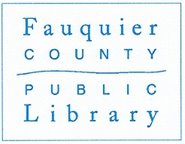
In recognition of the contributions of Hispanic Americans to the United States and to celebrate Hispanic heritage and culture, this observance was originally signed into law by President Lyndon B. Johnson in 1968 first as a weekly commemoration, and under President Reagan, in 1988 expanded to a full month.
This year, 2008, celebrates both a 40-year anniversary and a 20-year anniversary.
Here are some of the resources available at Fauquier Library about Hispanic life, culture and contributions to American society:
Latina magazine
People en español magazine
are both available at the Bealeton and Marshall Branch libraries.
Hispanic American Scientists and Hispanic American Writers illustrate the lives of prominent Hispanic Americans and their contributions to those fields.
Los Hispanos en Hollywood : celebrando 100 años en el cine y la televisión by Luis Reyes y Peter Rubie discusses the popular culture contributions and growing acclaim of Hispanic actors in Hollywood.
Hispanic Firsts: 500 years of extraordinary achievement by Nicolás Kanellos discusses many different areas of contribution by Hispanic Americans over the centuries.
Finding Your Hispanic Roots assists genealogical research for those whose ancestors came from Spain, Portugal, and Latin America.
The Other Face of America by Jorge Ramos describes the hopes and fears of immigrants to the United States from Mexico and other Latin American countries, and discusses their experiences in the United States, racism, linguistic change, and future developments.
The library has several other books in Spanish by Jorge Ramos the popular Univision anchor. Once upon a quinceañera Coming of Age in the USA by Julia Alvarez gives a cultural exploration of the Latina fifteenth birthday celebration traces the experiences of a Queens teen preparing for her quinceañera, in an account that documents the history of the celebration's traditions as well as its growing popularity.
Once upon a quinceañera Coming of Age in the USA by Julia Alvarez gives a cultural exploration of the Latina fifteenth birthday celebration traces the experiences of a Queens teen preparing for her quinceañera, in an account that documents the history of the celebration's traditions as well as its growing popularity.
Something to Declare.
In her first book of nonfiction, Julia Alvarez takes us behind the scenes and shares the lessons she's learned on her way to becoming an internationally acclaimed novelist. In 1960, when Alvarez was ten years old, her family fled the Dominican Republic. Her father participated in a failed coup attempt against the dictator Rafael Trujillo, and exile to the United States was the only way to save his life. The family settled in New York City, where Dr. Alvarez set up a medical practice in the Bronx while his wife and four daughters set about the business of assimilation--a lifelong struggle. Loss of her native land, language, culture, and extended family formed the thematic basis for two of Julia Alvarez's three best-selling novels.
Crossing Over: a Mexican family on the migrant trail by Ruben Martinez A powerful account of migrant culture traces the Chavez family as they leave their southern-Mexican town and embark on a perilous journey through the underground railroad to the tomato farms of Missouri, the strawberry fields of California, and the slaughterhouses of Wisconsin.
Bella Based on the award winning film, this novel version by Lisa Sampson tells the story of Jose, an international soccer star, who is on his way to sign a multi-million dollar contract when a series of events brings his career to a halt. Nina, a struggling waitress trying to make it in New York City, discovers something about herself she's unprepared for. In one irreversible moment, their lives are turned inside out - until a simple gesture of kindness brings them together, turning an ordinary day into an extraordinary experience.
Wednesday, September 17, 2008
Hispanic Heritage Month is September 15-October 15
Labels:
Hispanic Heritage Month,
spanish
